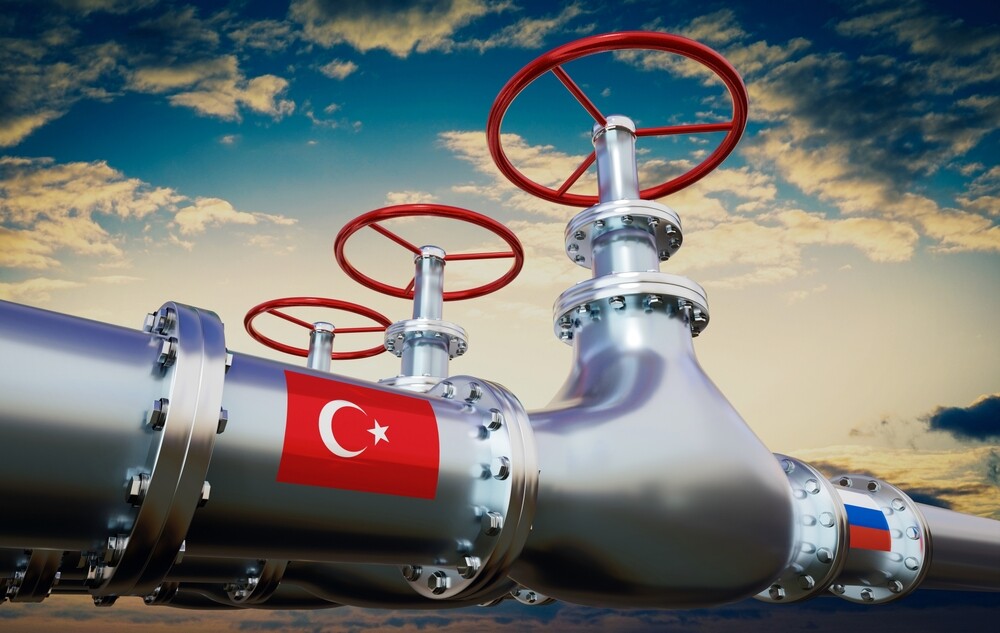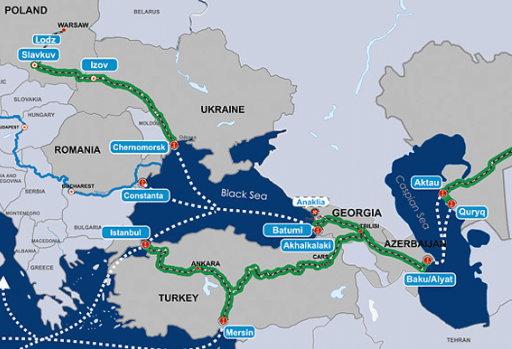Türkiye's renewed energy diplomacy could provoke a reaction in Russia Ankara’s dream is Moscow’s nightmare
Natural gas plays a key role in Türkiye’s economy and energy sector, with the country’s gas consumption growing in recent years. At the same time, Türkiye is fully dependent on imports of this resource, including large quantities from Russia. However, it has been implementing a diversification policy for years, which has brought tangible results. The renewed energy strategy required the country to upgrade energy infrastructure and build additional, such as new LNG terminals, and start production of its own gas while curbing domestic consumption.
During the rule of President Recep Tayyip Erdogan, Ankara developed a fruitful energy partnership with numerous countries like Russia, the United States, Azerbaijan, Iran, and Iraq, which became the country's top natural gas suppliers. While Russia remained the leading energy supplier of Türkiye, the US became the second-largest exporter of liquified gas. The data released in March 2022 by Türkiye's energy market regulator EPDK confirms that for the four months from October through January, the United States supplied 17.4 per cent of Türkiye's gas imports, well ahead of near neighbours and longtime suppliers Iran (11.9 per cent) and Azerbaijan (12.9 per cent).
In fact, Russia was the world's largest gas exporter until February 24, when Moscow invaded Ukraine, shaking global energy markets and forcing Europe to end its dependence on Russian fossil fuels. Europe imposed sanctions on Russia, which Türkiye has refused to apply. Since the war began, President Recep Tayyip Erdogan has sought to play a mediating role in the conflict, supplying weapons to Kyiv while maintaining close relations with President Vladimir Putin. The gas crisis in Europe has led to record-high and volatile prices as well as reduced gas availability, which resulted in shortage risks during last year’s winter. For its part, Türkiye has been able to secure stable supplies thanks to its extensive import infrastructure, existing contracts and good relations with Russia.

As a result of the intensified Moscow-Ankara partnership, Russia revealed plans to turn Türkiye into a natural gas hub, which triggered discontent among Ankara’s Western partners. The idea was to send more natural gas volumes to Türkiye and re-export them to Europe amid sanctions. Vladimir Putin's vision of making Türkiye a Russian gas hub could increase Ankara’s reliance on Russian fossil fuels, deepen its strategic dependence on Moscow in areas far from energy, and further damage Türkiye’s already complex relations with the West. However, Russia’s mounting casualties in Ukraine, Kyiv’s counteroffensive in the main frontline, and political instability within Russia likely pushed Ankara to reconcile with Western partners and address new foreign policy priorities after Erdogan’s re-election in May 2023.
Notably, in June 2023, Ankara announced its intentions to reduce dependence on Russian natural gas, seeking instead new alternative sources in the Caspian Sea, the Eastern Mediterranean and exploring new potential sources in Iraq. Moreover, Türkiye continues its uninterrupted drilling activities. Prospects are growing for natural gas deposits in the Kastamonu, Ordu and Rize regions along the Mediterranean and Black Sea coastlines.
Türkiye's assertive energy diplomacy enabled it to build a new regional energy network comprising nearly all neighbourhood countries, including Bulgaria and Greece. For example, in January 2023, Türkiye signed a 13-year gas deal with Bulgaria. The agreement will give Bulgarian national gas distributor Bulgargaz access to five Turkish LNG terminals plus the country’s gas pipeline network, run by state-owned company BOTAS. This means Sofia will be able to get more than half of its annual gas consumption, or 1.5 billion cubic metres (bcm), via Türkiye.

Indeed, Ankara is planning to boost the import and re-export of natural gas volumes and is actively engaged in negotiations with Azerbaijan and Turkmenistan for the realization of another major energy project known as the Trans-Caspian gas pipeline, which is designed to transport oil and natural gas from Kazakhstan and Turkmenistan to Azerbaijan, and from there, to international markets. The project consists of two sections: an oil pipeline carrying oil from Kazakhstan to Baku and a gas pipeline transporting natural gas from Turkmenbashi to Baku.
As the Turkish government strives to create a gas hub, it also seeks to develop more gas pipeline connections with other regions, including the Caspian region, Egypt and potentially with Israel. As a bonus of this policy, Ankara will have a chance to bolster political and economic ties with these countries and diversify the market of exports. Nevertheless, Ankara is unlikely to cut off all energy ties with Russia, considering the import volume of natural gas, even though Ankara's support to Kyiv will remain an apple of discord with Moscow for a long time.








